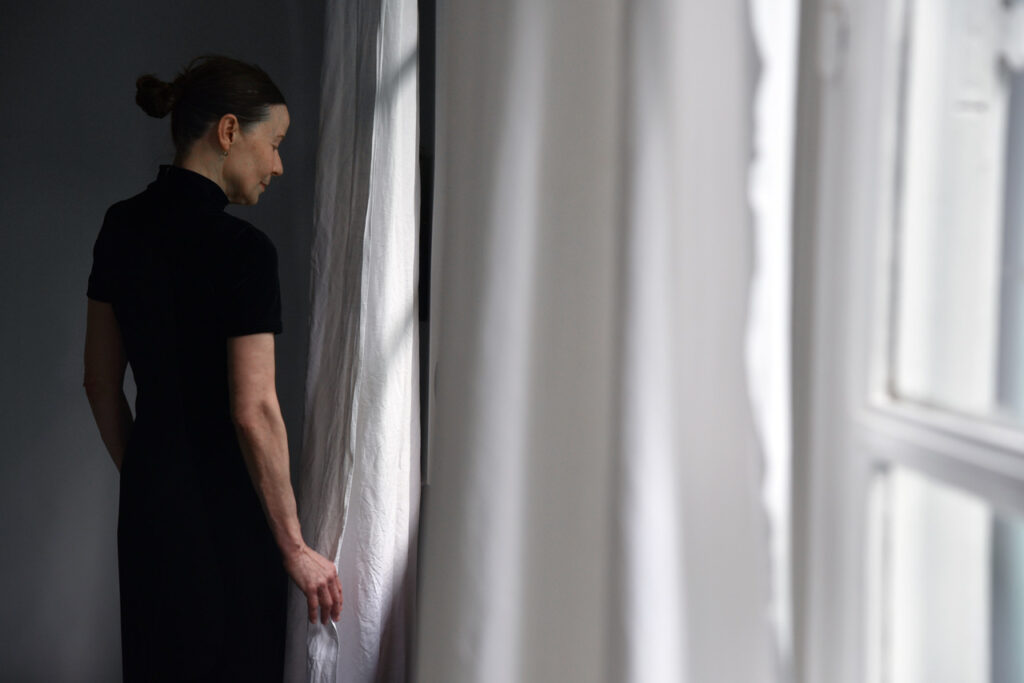
and we’ll never be parted _@ mammar benranou
09_2025
+++++++++++++++++++++++++++++++++++++++++++++++++++
(et jamais nous ne serons séparés)
director and scenography: daniel jeanneteau
director and scenography: mammar benranou
costumes: olga karpinsky
sound engineer: florent dalmas
music: olivier pasquet
Coproduction: Ircam – Centre Pompidou, La Comédie, Centre Dramatique National de Reims ; Le Méta Centre Dramatique National Poitiers Nouvelle-Aquitaine ; Bonlieu, Scène Nationale d’Annecy ; La Comédie de Genève ; Théâtre du Beauvaisis – Scène Nationale
A woman waits for the man she loves. He arrives. She is delighted to see him, but then, strangely, she can no longer see him. Yet he is there. He returns later, accompanied by a young girl. The two hesitate for a long time behind the door, frightened by something they cannot explain, then enter without really seeing the woman, who is still there, still waiting… Without providing answers or explanations, this text, deeply musical in its structure and rhythm, subtly questions the inner life of a being, the fragile construction of reality and the elusive temporality of the present. It also conveys an image of existential turmoil that is not without humour. The second play by the Norwegian author and winner of the 2023 Nobel Prize in Literature, this innovative work immediately placed Jon Fosse among the greatest European playwrights.
The ridge line of existence:
On a winding ridge line — between being and non-being, visible and invisible, triviality and transcendence — the actress enriches Jon Fosse’s writing with infinite nuances, a multitude of breaks and modulations. She seems at home here, tracing an irrefutable path, her gaze piercing and her smile always ambiguous, driven by an urgent need to speak, to express the perpetual ruminations that make her move and struggle. As a counterpoint to this extraordinary melodic line, Yann Boudaud asserts a dramatic intensity that is both austere and suave. His wholly enigmatic presence provides a magnificent anchor for the breadth of the play, which also benefits from Solène Arbel’s persistent turmoil. How can we deal with the gaps in reality and the excesses of consciousness? What answers can be given to the convulsions of loneliness, to the conflagrations of love that sweep everything away in their path? How, in short, can we live, how can we be ourselves in a world made for others? Jon Fosse offers no answers to these abysses of intimacy.
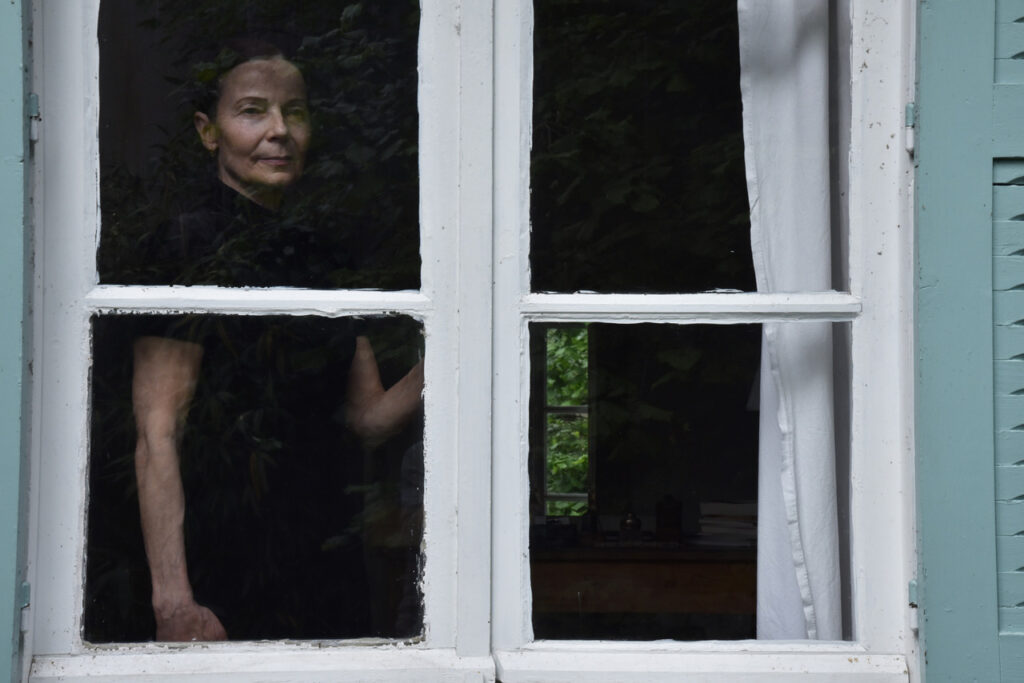
and we'll never be parted @ mammar benranou
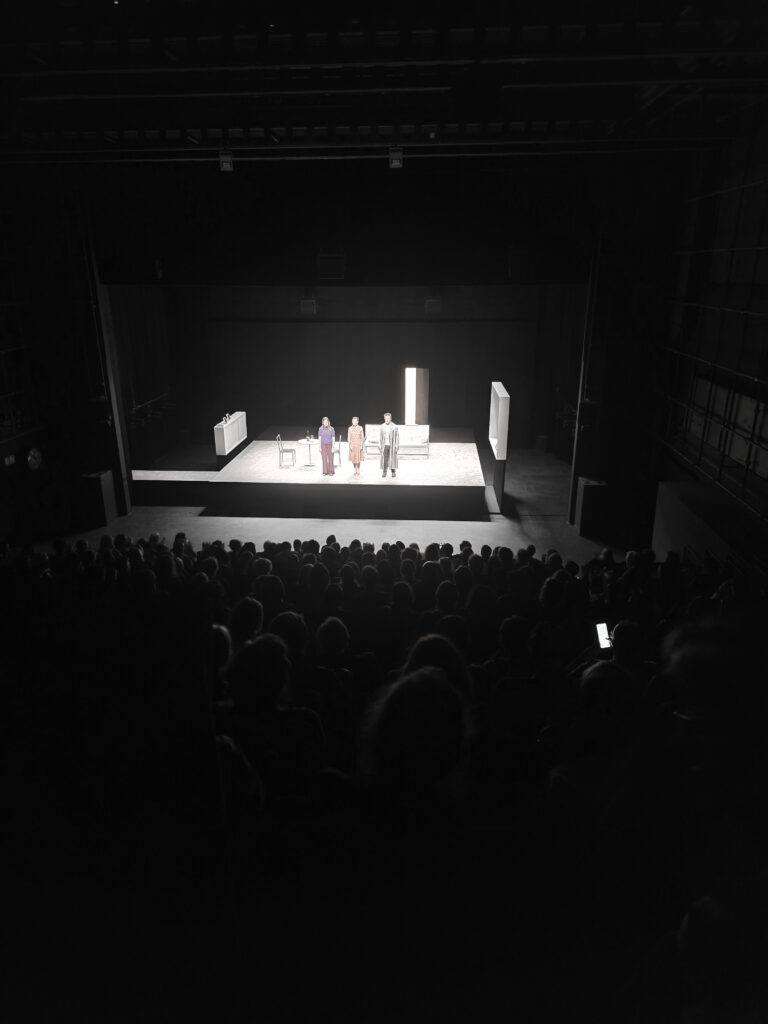
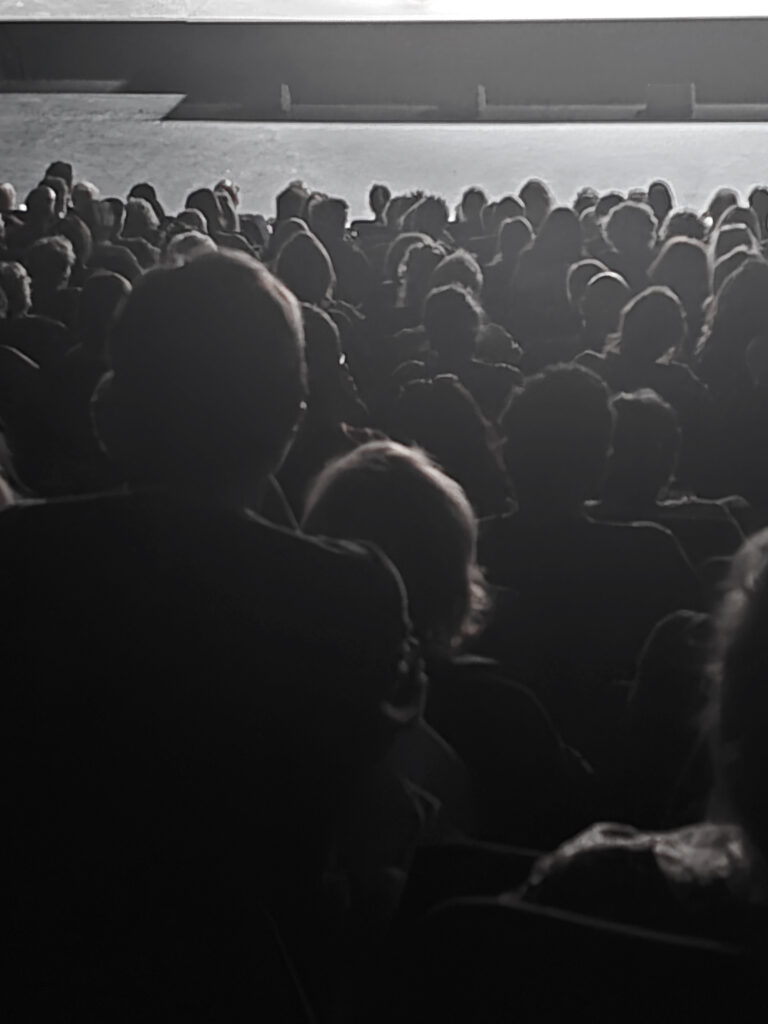
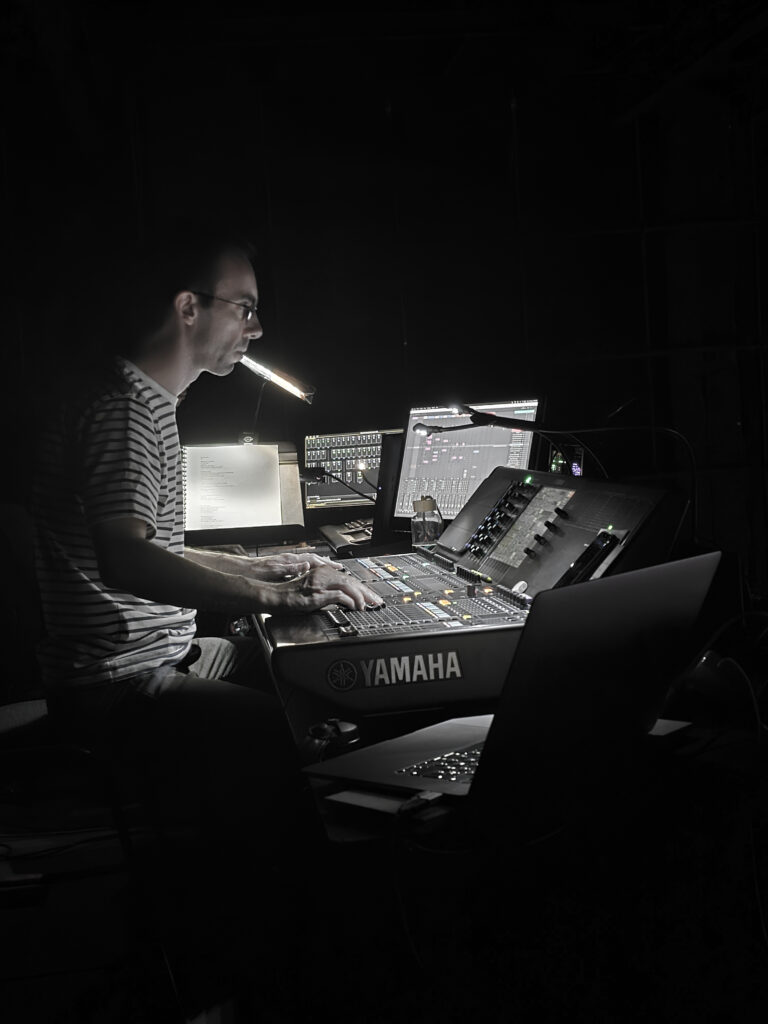
florent dalmas concentrated on and we’ll never be parted